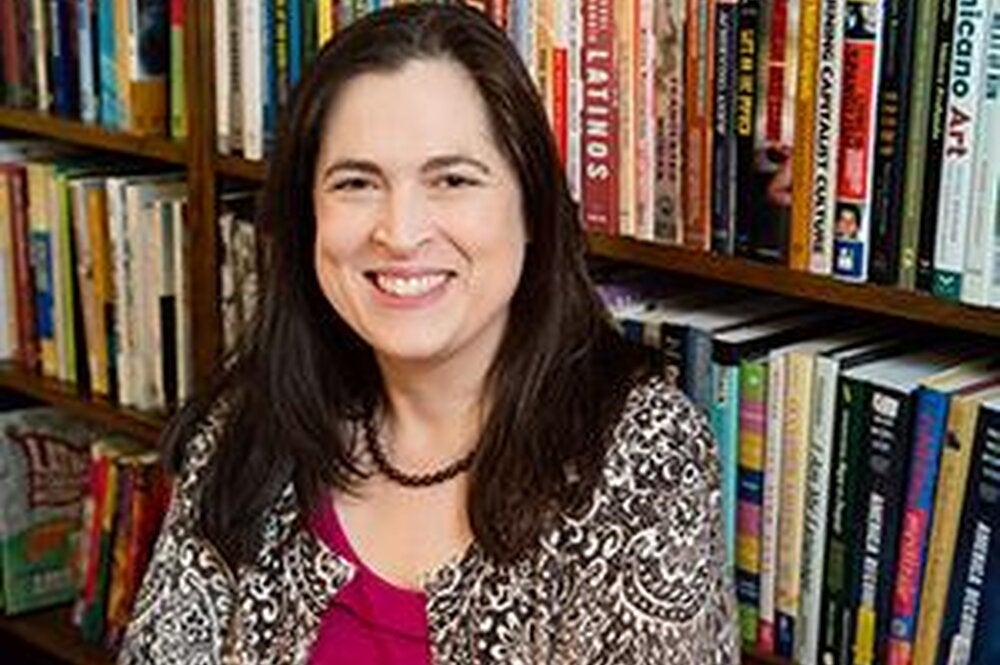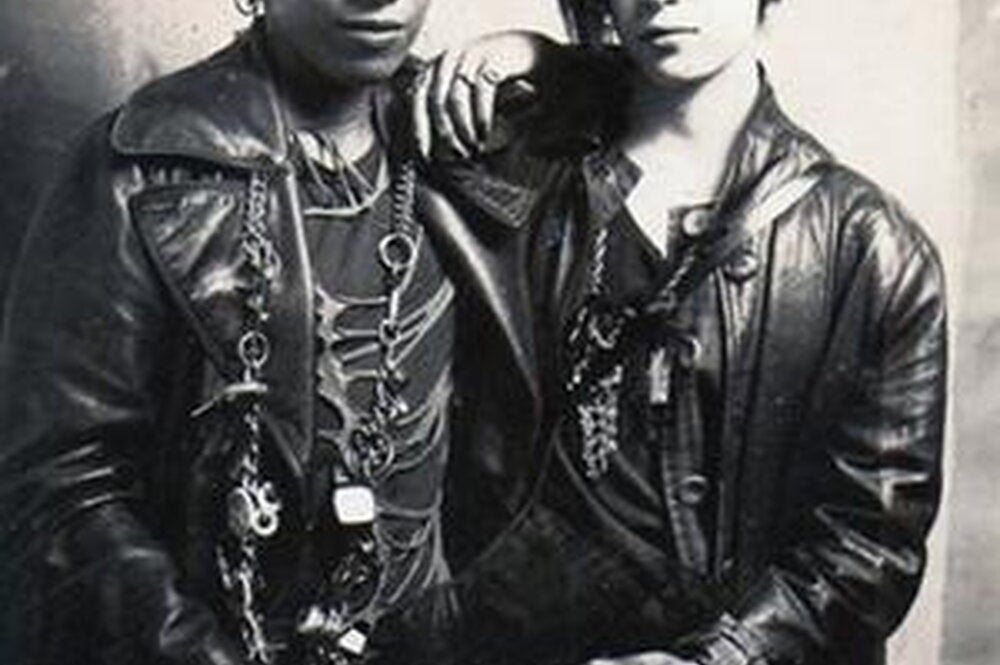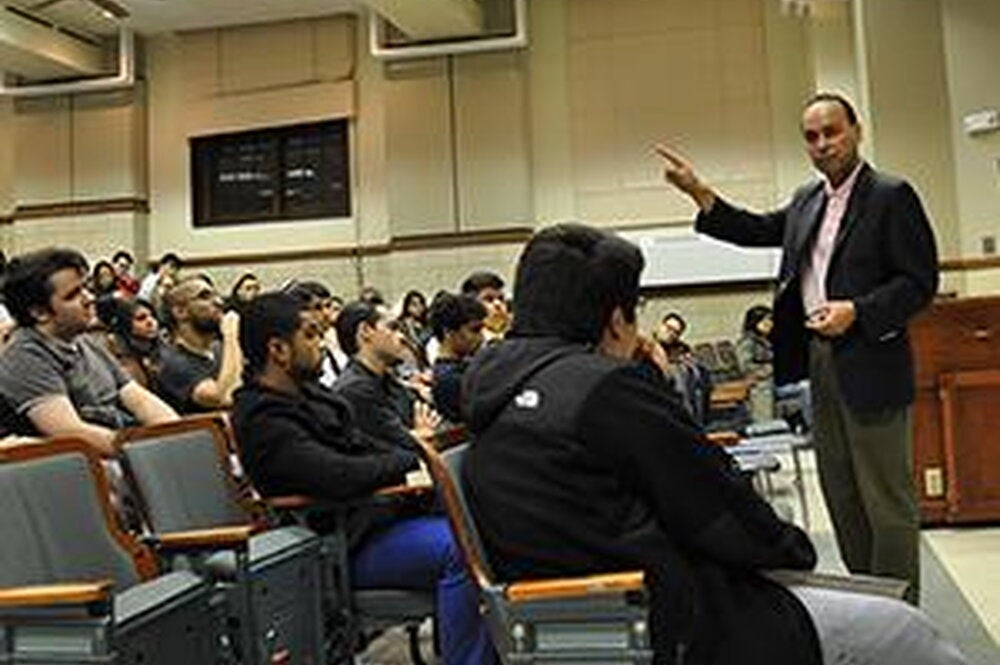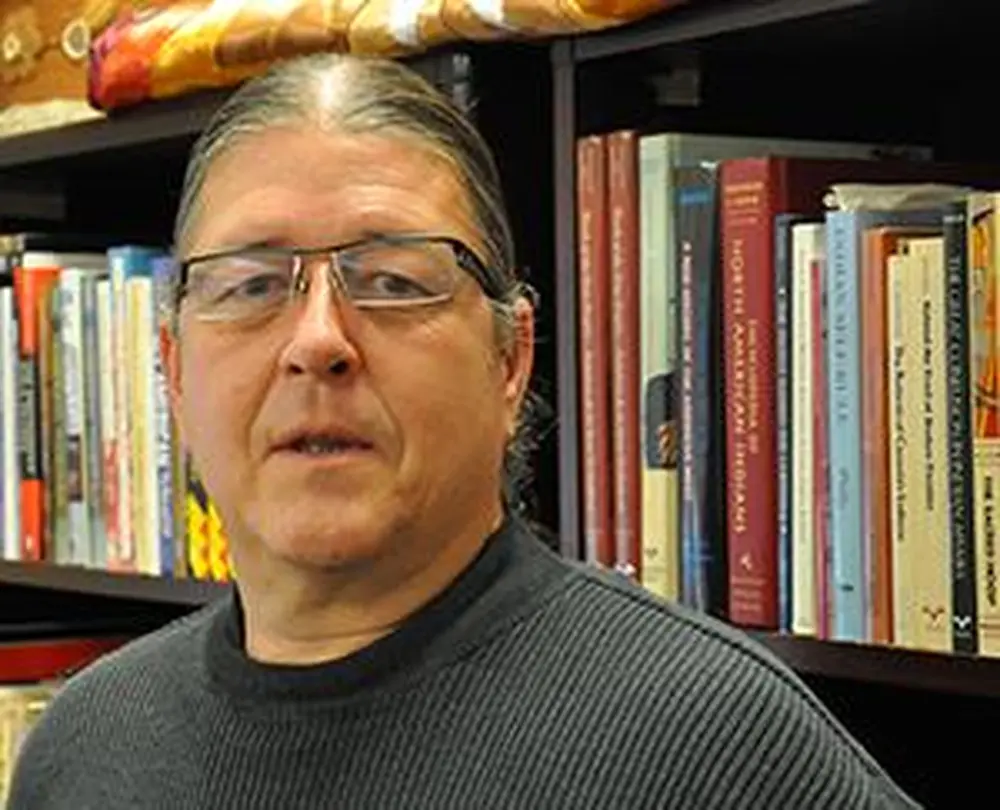
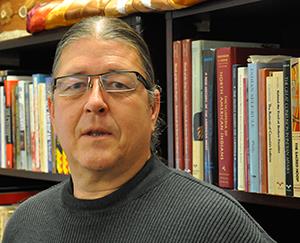
One needs to look no further than the TV listings to know that history looks great on screen. From the Civil War to the Titanic, today’s viewers have their pick of riveting historical documentaries to choose from.
But history and television can be an uneasy mix, with accuracy sometimes at odds with the flair required to keep viewers glued. Few are as familiar with this balancing act as Robert Warrior, director of the American Indian Studies Program at the U of I who has appeared as an expert in about a dozen historical documentaries regarding Native Americans.
His most recent appearance came in The Ultimate Guide to the Presidents, an eight-part series on the History Channel that aired in January. He has also appeared in other prominent documentaries, including another History Channel miniseries, America: The Story of Us, and We Shall Remain, a miniseries on Native American history produced by the PBS series American Experience.
The professor of English, history, and American Indian studies is not exactly sure how this interesting aside to his academic career came to be, but it’s fair to say that television producers have been pleased enough with his interviews that his name has made the rounds.
Being a documentary “expert” typically starts when you’re quoted in a news story, or when you write something, Warrior says (he co-authored Like a Hurricane: The Indian Movement from Alcatraz to Wounded Knee, which earned him his role in We Shall Remain), and a film company comes across your name.
If you do a good job on camera that first time, you might expect another call, and another. As he puts it, “if you’re in somebody’s Rolodex you’re likely to end up in somebody else’s Rolodex.”
His background also has something to do with it. In addition to his academic expertise, he is a member of the Osage Nation, a Native American tribe located in Oklahoma, meaning that not only does he provide a Native American voice that producers want, but he offers accurate historical perspectives that they need.
“Some of these projects are difficult, because they tell me that I am going to be the only Native American voice in the telling of the story,” Warrior says. “That’s usually the compelling reason why I do it, because I want there to be a credible Native American voice.”
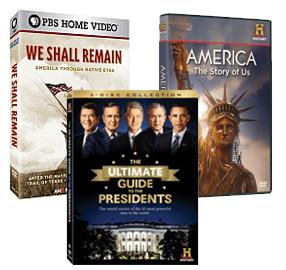
Far from your stereotypical TV personality, Warrior holds a rather quiet and academic demeanor, which, indeed, has sometimes been at odds with producers. He recalls the making of We Shall Remain—which was based in part on a book—when creative consultants such as himself argued that certain complications of the story were being overlooked.
They were told, Warrior says, that to make a compelling documentary, you often have to stick to one version of the story, and defend your version as necessary. Their point of view spoke volumes as to how television works.
“I think that’s the challenge as an academic when you decide to do one of these things,” he says. “How do you maintain your critical scholarly edge and make sure that what you say is not just accurate but a defensible way of telling what history is?”
Not only that, but to be successful in this business there’s the matter of “staying off the cutting room floor,” he says. When tenths of a second count, as they do in television, your words must be accurate, compelling, and brief.
“You have to have good stories to tell,” he says. “That’s always the challenge, to think of anecdotes that will be interesting and can be translated into the larger story you’re telling.”
He seems to have the hang of that. In his latest documentary, The Ultimate Guide to the Presidents, Warrior discusses Andrew Jackson, the seventh president of the United States remembered for implementing the forcible removal of Native Americans commonly known as the Trail of Tears.
Warrior tried to find a way to portray Jackson’s policies in a way that showed they still have moral consequences today, more than 180 years later. The words he found were used by the producers as a parting thought on the topic.
“I know Cherokee people who don’t like $20 bills,” Warrior told the interviewer, “just because they see President Jackson on it.”
